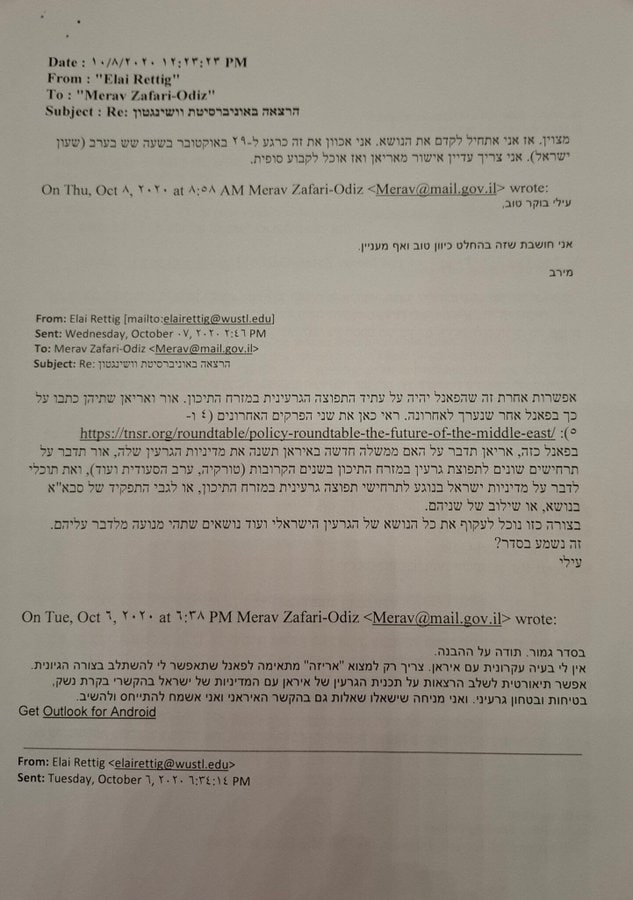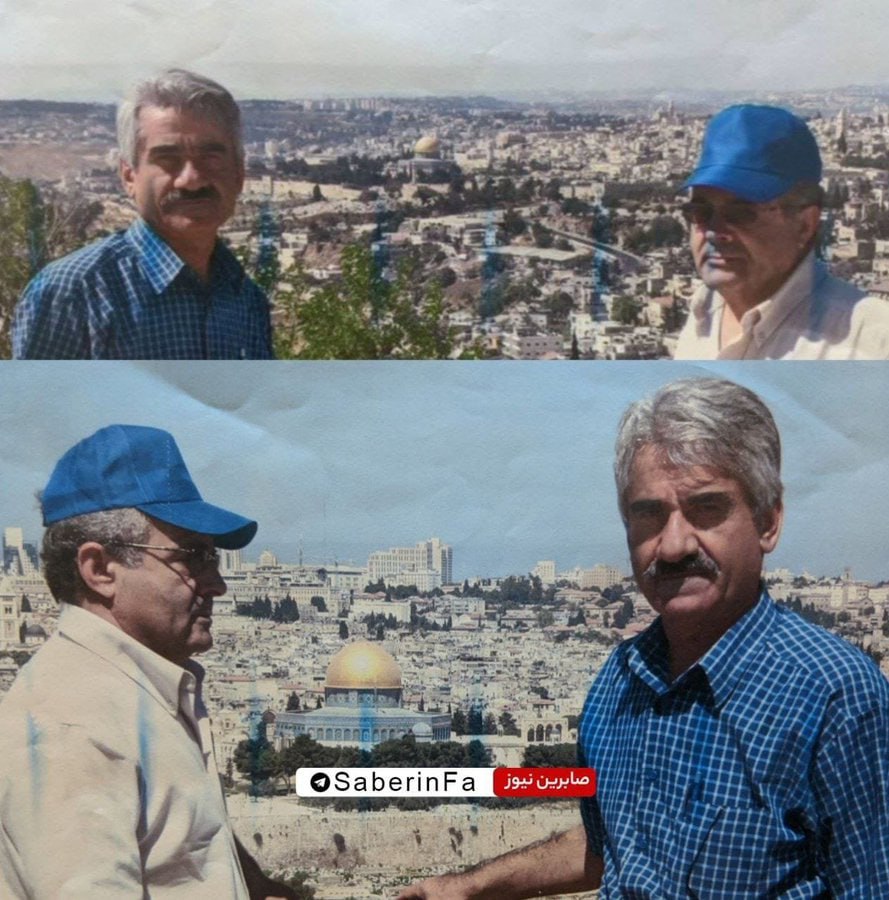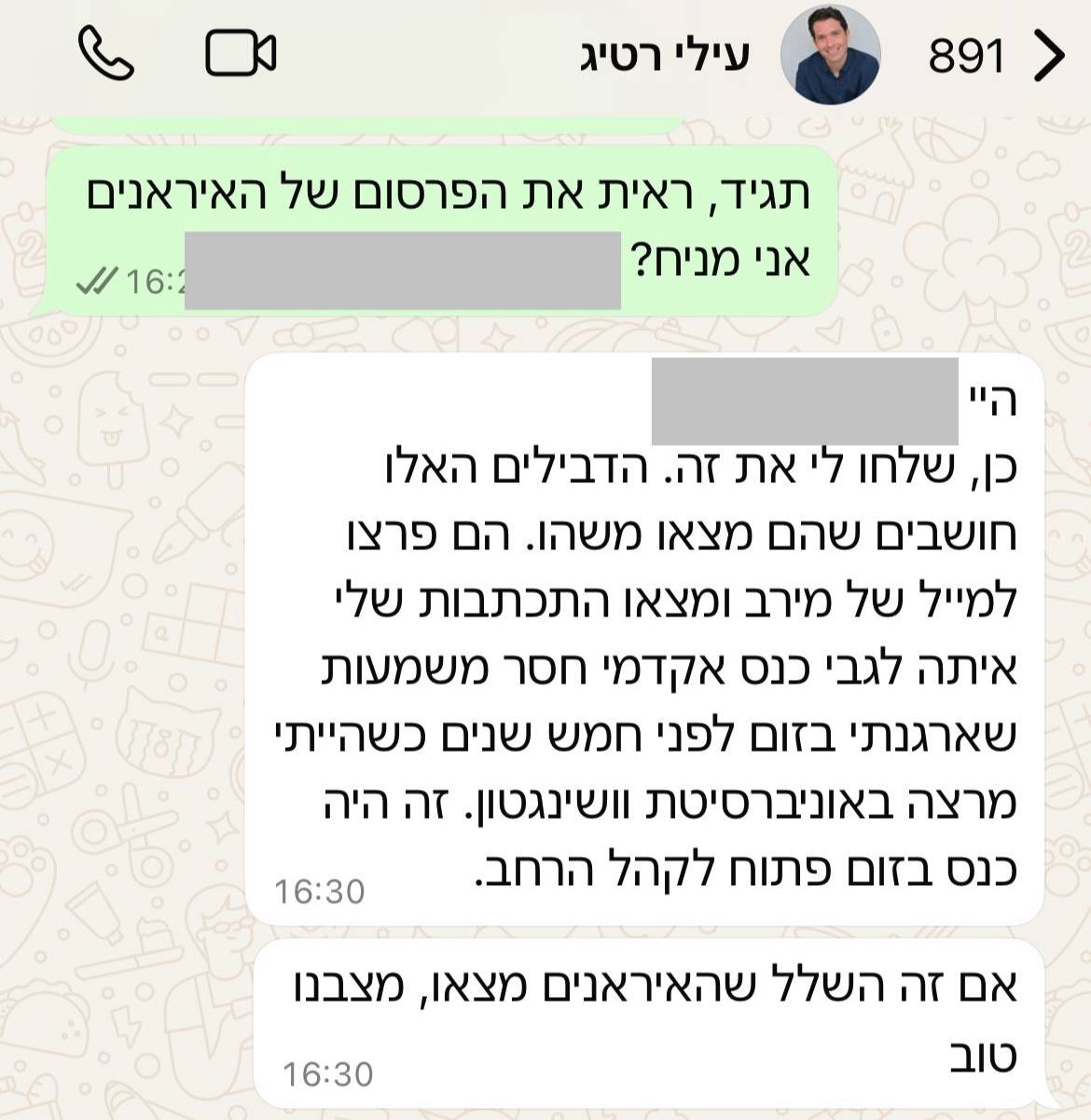Iran’s ‘Leaked’ Documents Show... a 2016 Email Requesting a Meeting
Tehran accuses Israel of secretly influencing IAEA chief Rafael Grossi — but the “evidence” is a single outdated email and a handful of irrelevant academic exchanges
Iranian state media is touting what it calls a bombshell leak proving a secret Zionist conspiracy inside the International Atomic Energy Agency (IAEA). The “exposed documents,” they claim, reveal covert ties between IAEA Director General Rafael Grossi and Israel’s representative to the agency, Merav Zafary-Odiz.
But there’s a small problem. The centerpiece of the so-called leaked file is... a single email from 2016. Nearly a decade old, the email simply shows Zafary-Odiz requesting a meeting with Grossi — then a senior figure at the agency. That’s it. No intelligence sharing, no sensitive materials, not even a follow-up.
Alongside the email, Iranian outlets published a few additional emails between Zafary-Odiz and an Israeli academic regarding the logistics of an upcoming conference. None of the content is classified, political, or even remotely suspicious. Yet Tehran is pointing to this as irrefutable proof of "Zionist manipulation" inside the IAEA.
The claim comes amid growing pressure on Iran’s nuclear program, especially following a damning censure resolution passed by the IAEA Board of Governors this week — the first in over 20 years. Iranian opposition sources, meanwhile, have been publishing detailed reports and satellite imagery exposing suspected weapons development sites inside Iran.

According to experts, the timing of the “leak” is telling.
“This is Iran lashing out,” said one Western intelligence analyst. “They’re under unprecedented scrutiny, and they’re trying to muddy the waters by making absurd counter-allegations.”
The campaign didn’t stop there. Earlier this week, Iranian state media aired footage on a Kurdish-language channel purporting to show Israeli agents cooperating with Kurdish separatists inside Iran. The images, however, were clumsily edited — not AI-generated or manipulated deepfakes, just basic cut-and-paste work.

“They didn’t even try to make it convincing,” commented Israeli researcher Dr. Elai Rettig, whose name appeared in the Iranian report. “A 12-year-old with PowerPoint could have done better.”
